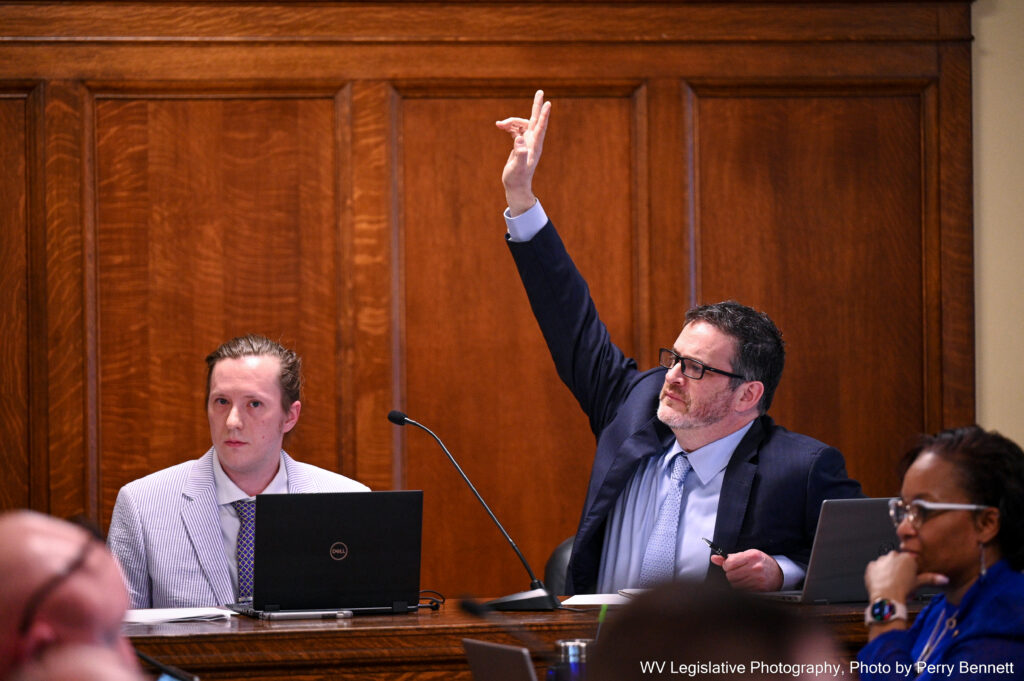Legislators on the House Health and Human Resources Committee discussed the sale of raw milk in the state of West Virginia in a meeting on Tuesday, Feb. 13.
The practice of “herd sharing” has been legal in West Virginia since 2016. A herd share lets people enter agreements to share milk-producing animals and drink raw milk.
In March of that same year, lawmakers drank raw milk in celebration after passing the legislation and fell ill. According to reports, there also had been a stomach illness circulating at the Capitol. The investigation yielded no conclusive findings.
House Bill 4911 would remove the restrictions on the sale of raw milk and permit the sale of raw milk as long as the containers are clearly labeled as ungraded raw milk along with the seller’s name and date of production.
The bill provides some immunity for the sellers for personal injuries and other civil liability for selling raw milk, excluding damage loss, injury or liability caused by intentional or willful or wanton misconduct.
Del. Mike Pushkin, D-Kanawha, asked counsel if the state allows the same immunities to any other kind of food production. He moved to amend the bill to strike the section protecting sellers.
Del. Heather Tully, R-Nicholas, urged rejection of Pushkin’s amendment, calling House Bill 4911 a “freedom bill.”
“You choose where you buy this milk,” Tully said. “You don’t have to stop going to Kroger’s to get your homogenized, pasteurized milk if that’s what you prefer. But I do think it allows an option.”
Pushkin closed the debate on his amendment by asking his colleagues if any other food processor in the state is offered the same protections and questioning the safety of the sale of raw milk.
“If they do something wrong and people get sick, they should be able to seek justice over this,” Pushkin said. “If it’s so safe, then why do we need this? This line in the bill? And we can’t think of one other food product where we give blanket immunity to the seller or the manufacturer.”
Pushkin’s amendment failed upon committee vote.
Del. Steve Westfall, R-Jackson, recounted his experience growing up on a farm and drinking unpasteurized milk before pasteurization laws.
“So, I still have little reservation about this because I remember making my chocolate milk and having to tip the cream off the top of where I would drink this stuff,” Westfall said. “But overall, I don’t think it’s not a bad bill.”
Del. Roy Cooper, R- Summers, told his colleagues that this bill would benefit the growing Amish population in his district.
“Those people consume raw milk daily and we never hear of any of them being sick from raw milk,” Cooper said. “And I know I buy raw milk from them because it’s cheaper to buy raw milk than it is to drive 12 miles for a gallon of pasteurized milk.”
Pushkin reiterated his opposition to the bill, saying he would have voted for it had it included his previous amendment.
“If it’s so safe, and it’s and then then why do we have to put this blanket immunity?” Pushkin asked. “So yeah, I’m all for freedom and I grew up here too, but also was raised and, you know, after the advent of pasteurization, it’s there for a reason.”
The House committee sent the bill to the House floor for consideration by the entire body.
Appalachia Health News is a project of West Virginia Public Broadcasting with support from Charleston Area Medical Center and Marshall Health.




















